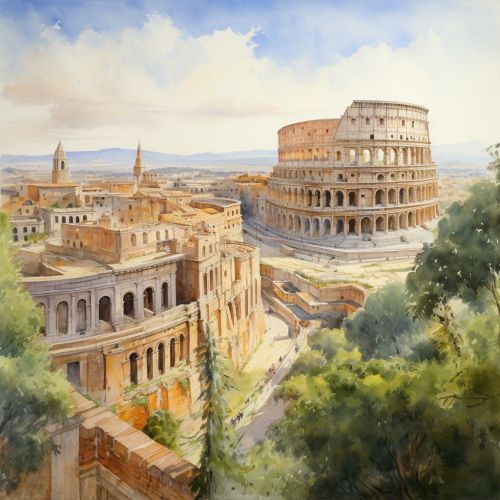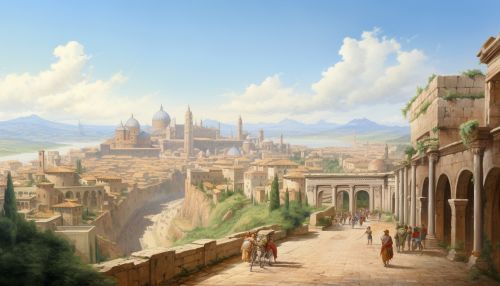Rome
History
Rome's history spans over two and a half thousand years, making it one of the oldest continuously inhabited cities in Europe. The city's history is intertwined with the history of the Roman Empire, as it was the capital of the empire during its most influential periods.
Founding and Kingdom
According to legend, Rome was founded in 753 BC by its first king, Romulus. It grew into a rich and powerful city during the next few centuries by absorbing other cities, tribes, and cultures. By the end of the Roman Kingdom, Rome had conquered the whole Italian peninsula and was a major power in the Mediterranean region.


Republic
The establishment of the Roman Republic in 509 BC marked a significant shift in Rome's governance structure. The Republic functioned as a representative democracy, with power shared among elected officials. This period saw Rome's territorial expansion continue unabated, with the city growing into a vast empire.
Empire
The transition from a republic to an empire, known as the Roman Empire, began in 27 BC when Augustus became the first Roman Emperor. The empire expanded further, reaching its greatest extent in the 2nd century AD. This period was marked by prosperity, stability, and a flourishing of the arts and sciences.
Geography
Rome is located in the central-western portion of the Italian Peninsula, within the Lazio region. It's situated on the Tiber River, about 24 kilometers inland from the Tyrrhenian Sea. The city's topography is characterized by seven hills and the alluvial plain of the Tiber.
Demographics
As of 2020, Rome has a population of approximately 2.8 million people, making it the most populous city in Italy and the fourth most populous city in the European Union. The city is also home to a significant number of immigrants, contributing to its diverse cultural landscape.
Economy
Rome's economy is characterized by a mix of high-tech companies, research, construction, and commercial activities. It is also a global hub for the film industry, with the historic Cinecittà studios often referred to as the "Hollywood on the Tiber".
Culture
Rome is a major world center for the arts, with a rich cultural and historical heritage. It is home to numerous museums, art galleries, and ancient sites, including the Colosseum, the Roman Forum, and the Pantheon.
